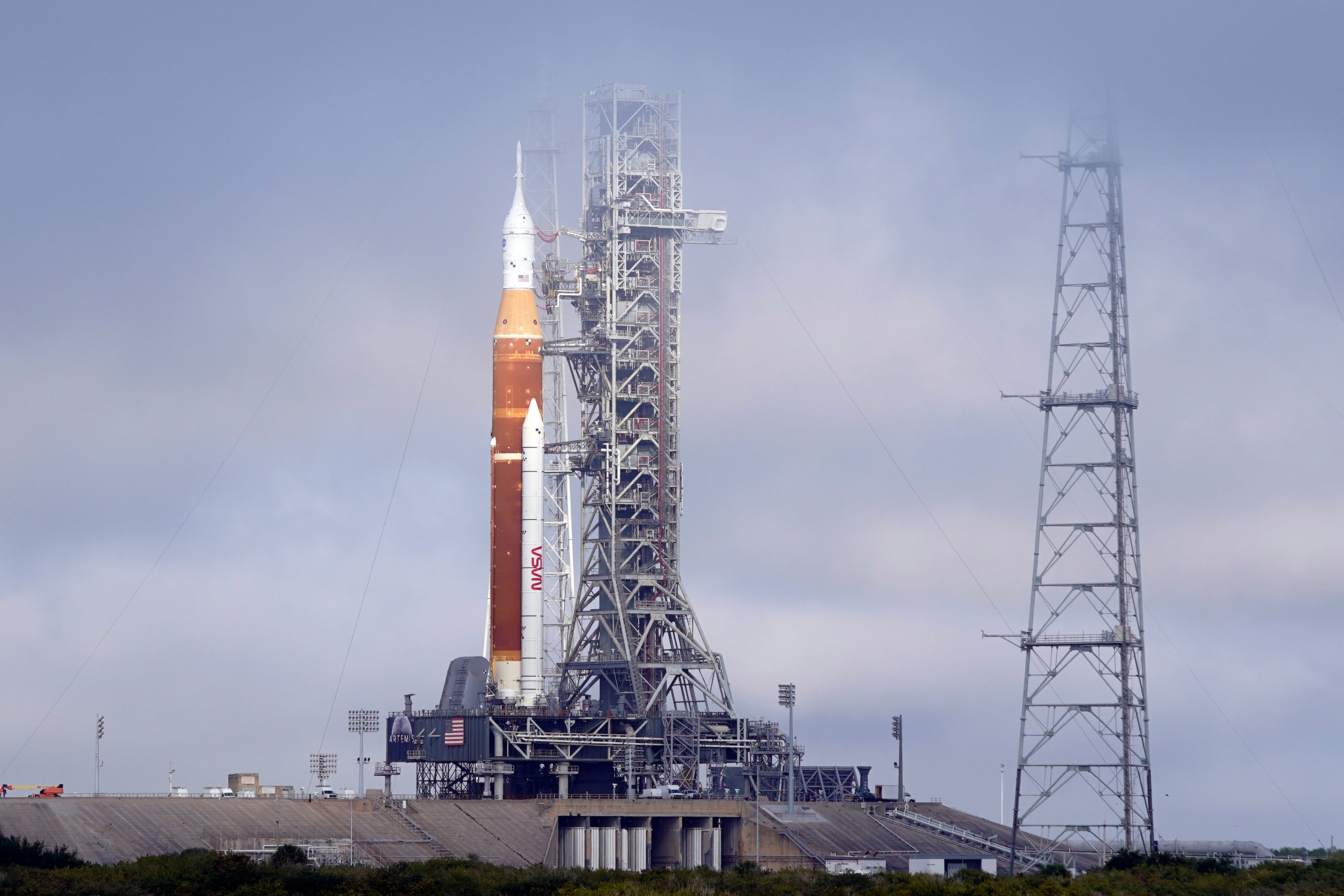Dress rehearsal: NASA moon rocket's last test before launch
NASA is kicking off a critical countdown test for its new moon rocket

NASA kicked off a critical countdown test Friday for its new moon rocket, a 30-story behemoth that could make its first lunar test flight by summer.
The two-day demonstration — the final major milestone before liftoff to the moon — will culminate Sunday as teams load nearly 1 million gallons of super-cold fuel into the rocket on the pad. The countdown will halt at the 9-second mark before engines ignite.
NASA plans to set a launch date after analyzing the results of the dress rehearsal for the Space Launch System rocket — SLS for short.
Officials have indicated the rocket could blast off as early as June, sending the attached Orion crew capsule hurtling toward the moon. The capsule will spend at least a month in space before returning to Earth.
No one will be on board for the first moonshot since NASA’s Apollo lunar landings a half-century ago. Astronauts will strap in for the second test flight slated for 2024, looping around the moon and back. That would pave the way for astronauts landing on the moon around 2025, according to NASA.
The U.S. Government Accountability Office recently warned, however, that technical challenges remain — primarily with the lunar lander and spacesuits — that could further delay the moon landing, already years behind schedule. The GAO also cited billions in escalating costs.
Towering 322 feet (98 meters), the rocket made its debut at the Kennedy Space Center launch pad two weeks ago. Since then, all of its systems have been powered up in preparation for this weekend’s test. Officials stressed that possible thunderstorms or technical problems could drag out the rehearsal.
NASA promised to provide updates throughout the weekend, but the public won't be able to listen in. The space agency cited security concerns.
“We are being cautious — an abundance of caution — and that’s particularly in the environment that we’re in nowadays,” said Tom Whitmeyer, head of NASA’s exploration systems development.
NASA expects to announce the crews for the initial lunar missions this summer. The pool of candidates includes nine men and nine women; two are at the International Space Station and two are due to arrive there in a few weeks.
Twenty-four astronauts flew to the moon during Apollo from 1968 through 1972; 12 landed on the lunar surface.
Unlike Apollo, NASA is partnering with private business for its moon program, named Artemis after Apollo’s twin sister in Greek mythology. While NASA's rocket and capsule will get astronauts into lunar orbit, SpaceX’s still-in-development Starship will carry them down to the lunar surface, at least for the first mission. NASA is seeking additional companies for later landings.
The space agency’s goal is to develop a sustainable moon presence, then aim for Mars. NASA Administrator Bill Nelson recently cited 2040 as the target for a Martian expedition with astronauts.
___
The Associated Press Health and Science Department receives support from the Howard Hughes Medical Institute’s Department of Science Education. The AP is solely responsible for all content.
Bookmark popover
Removed from bookmarks